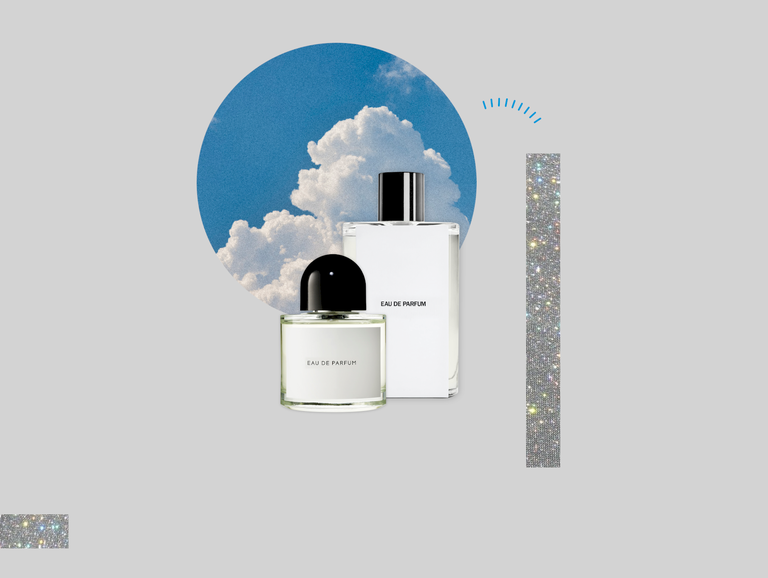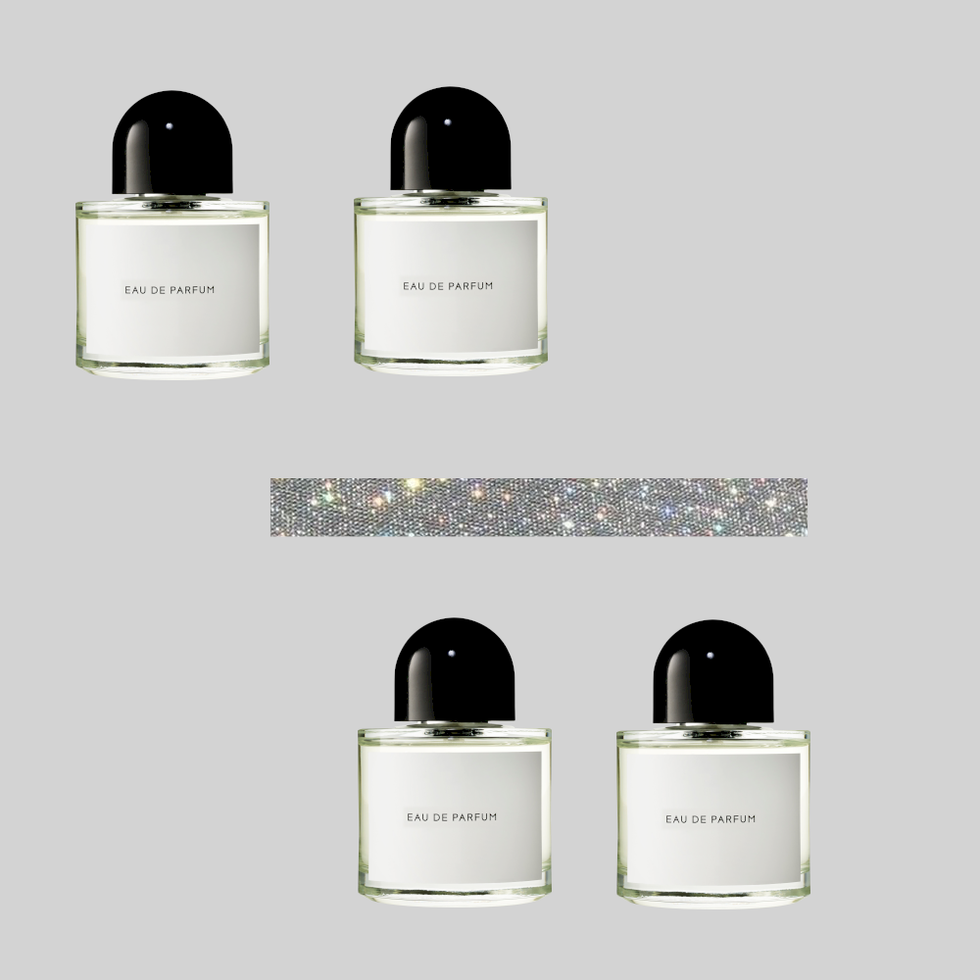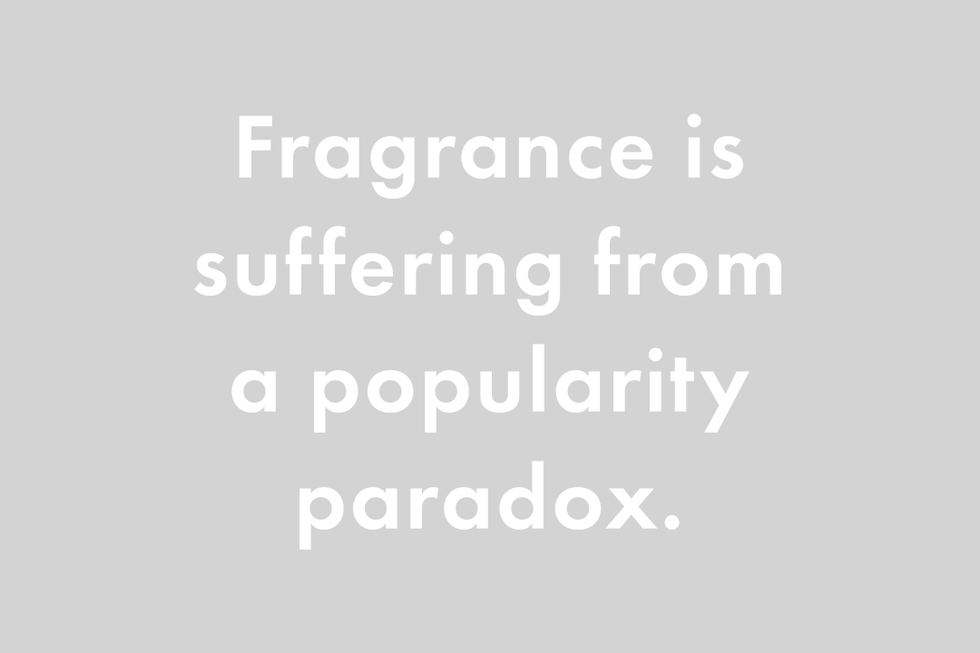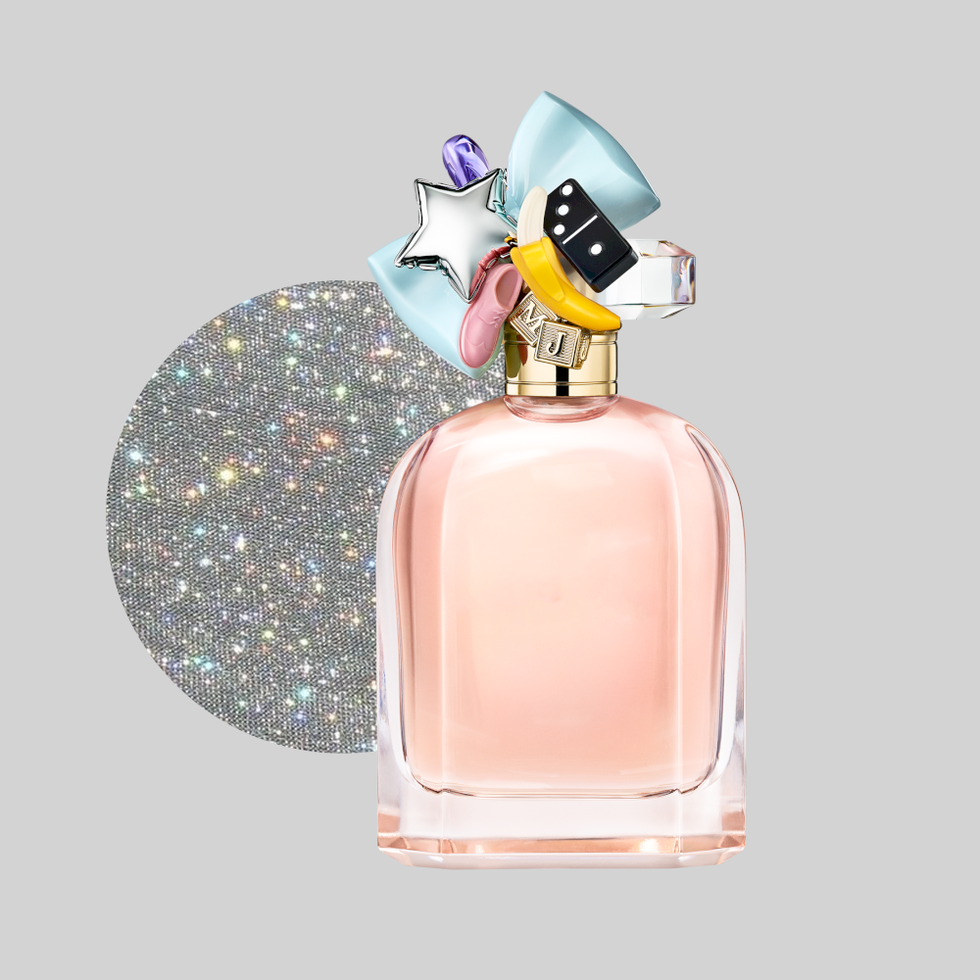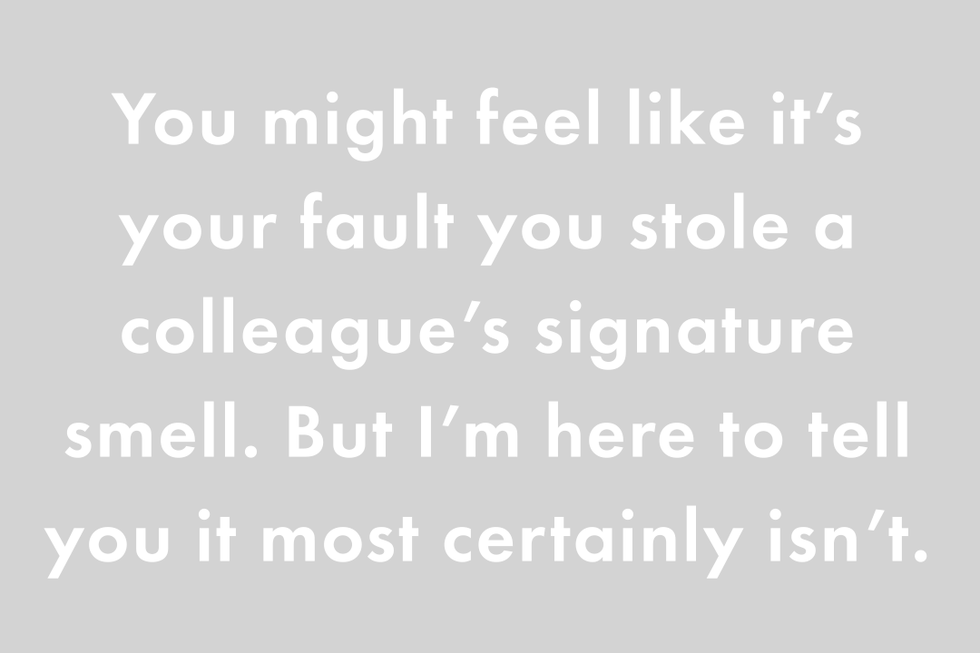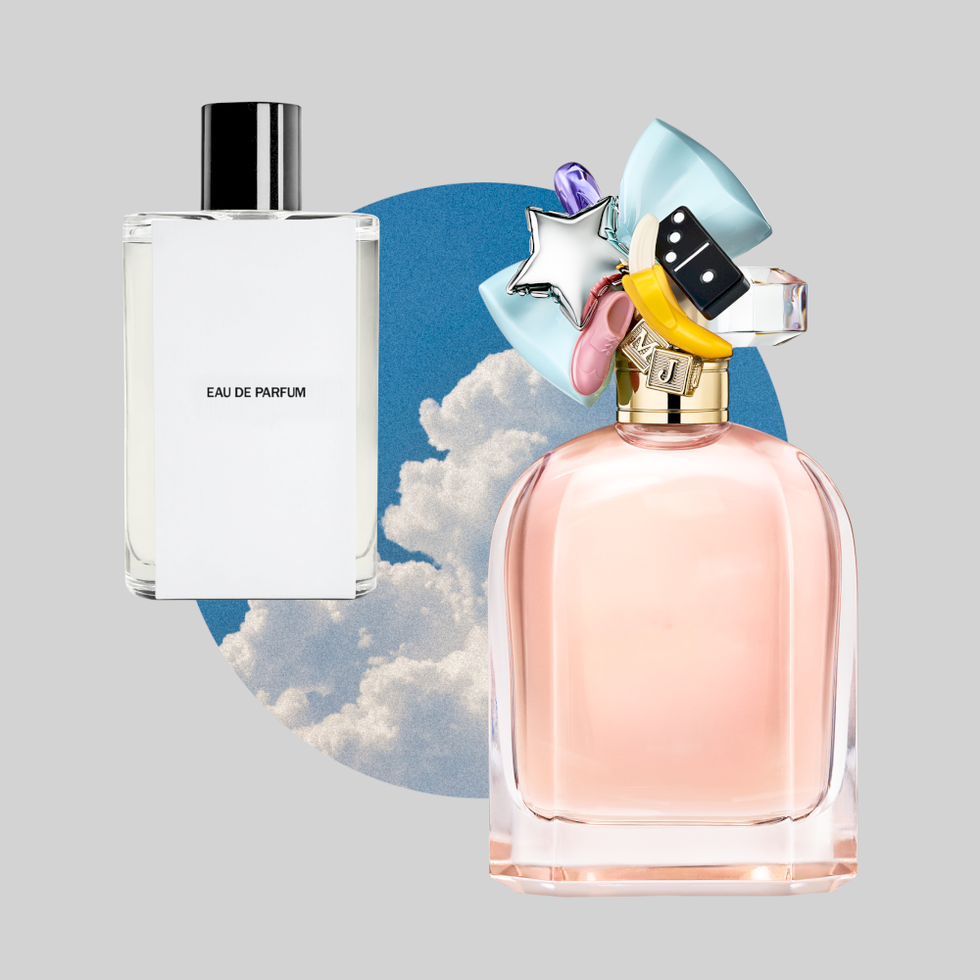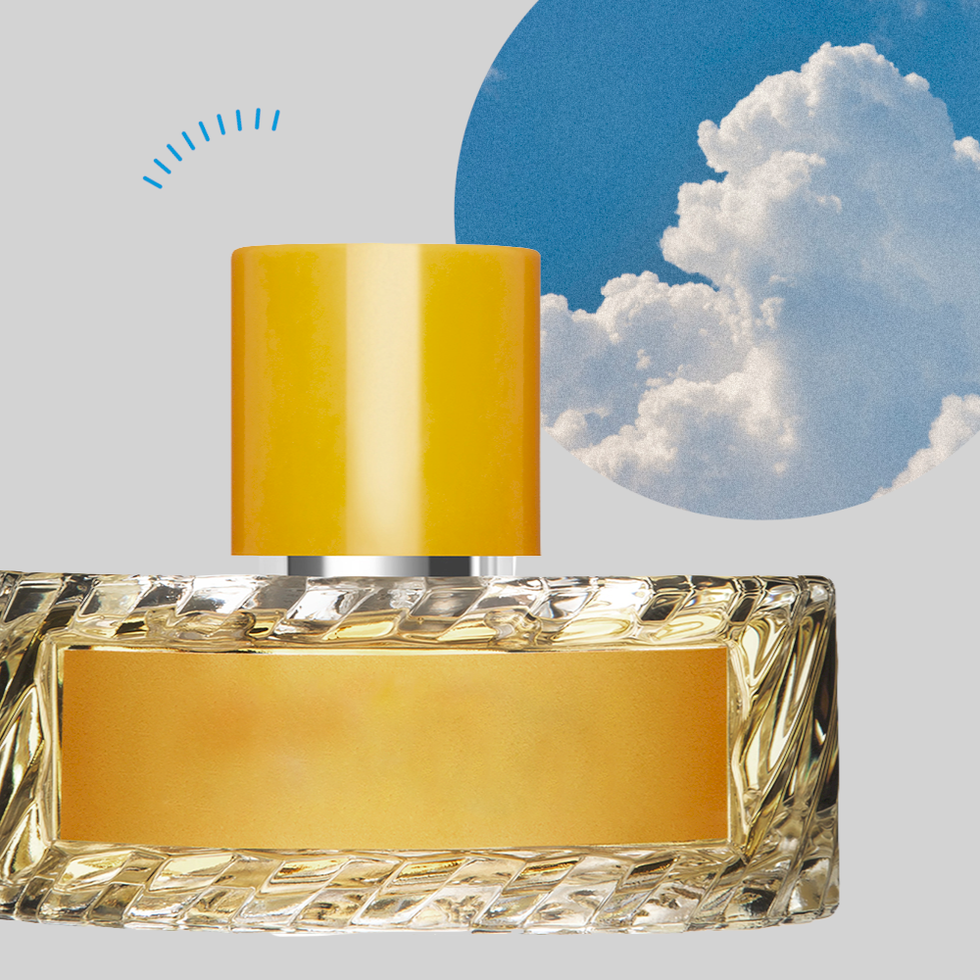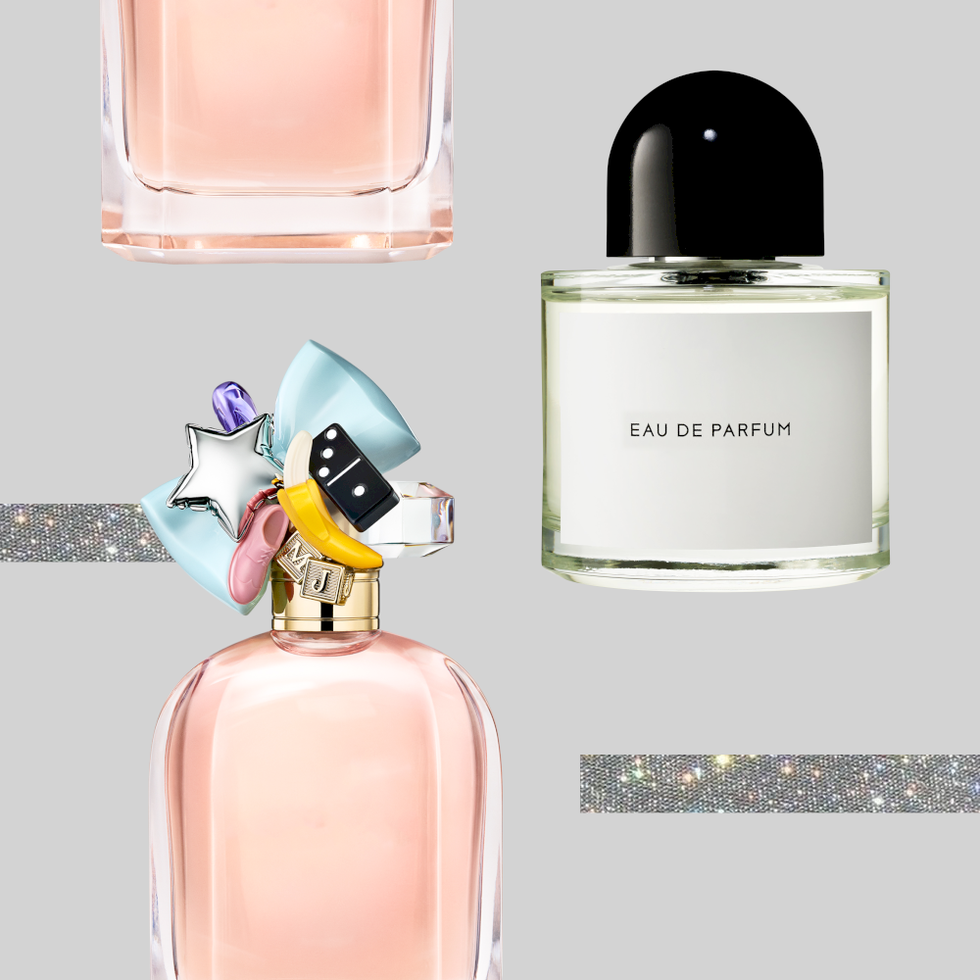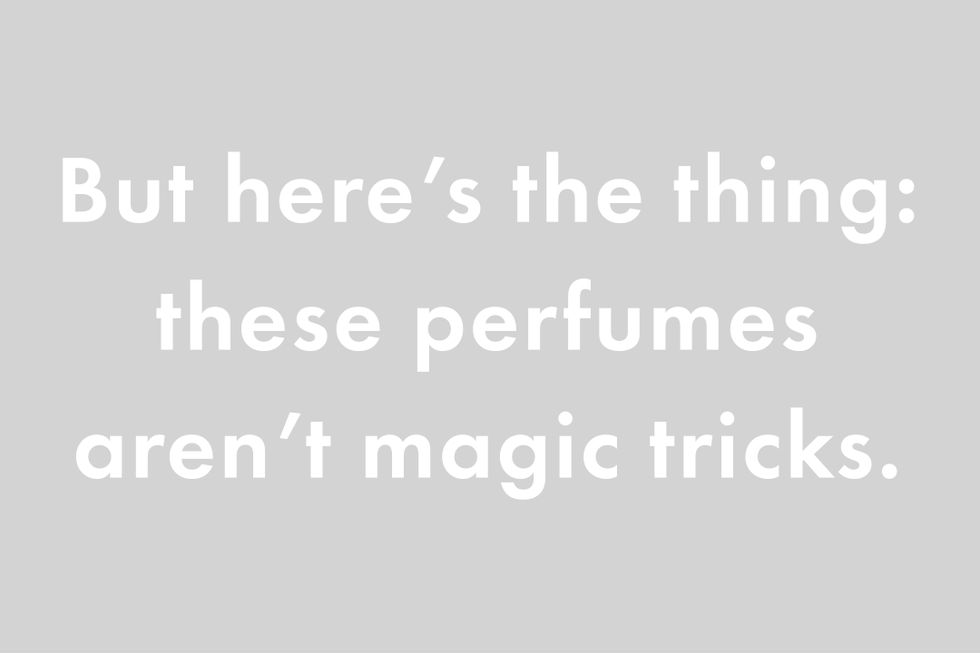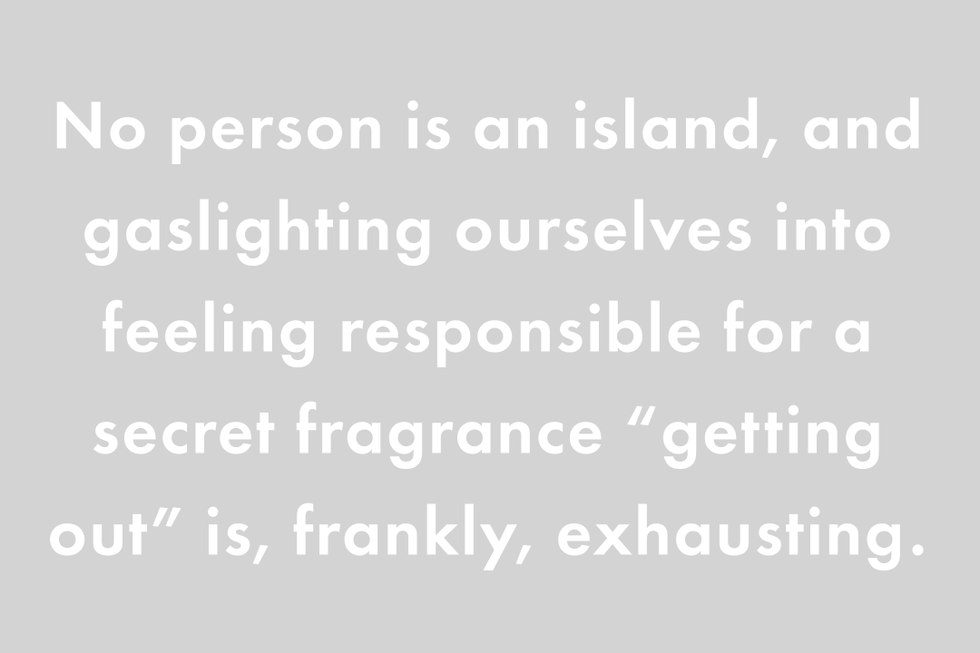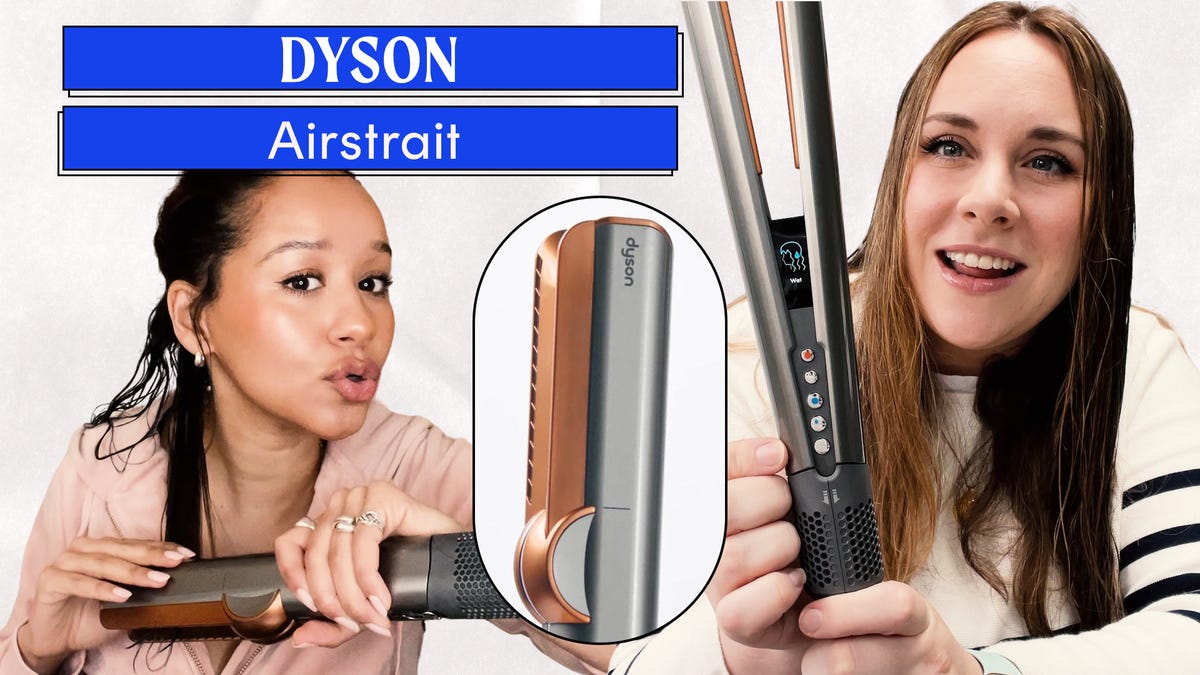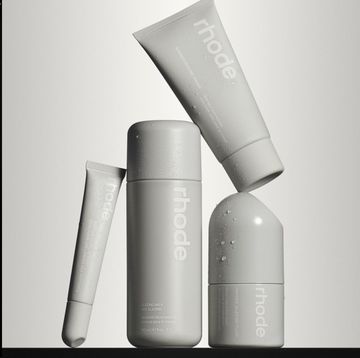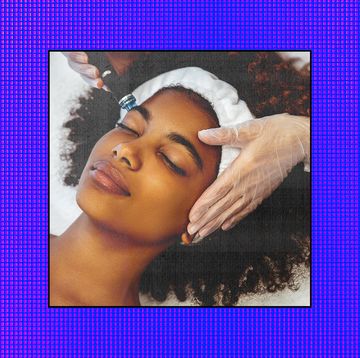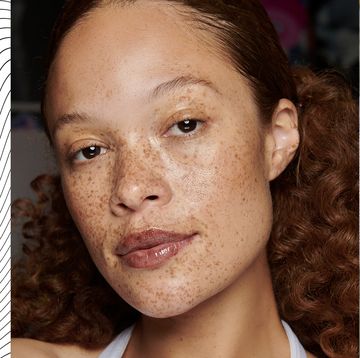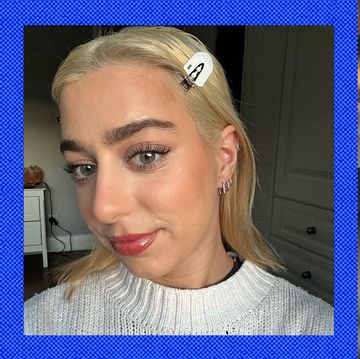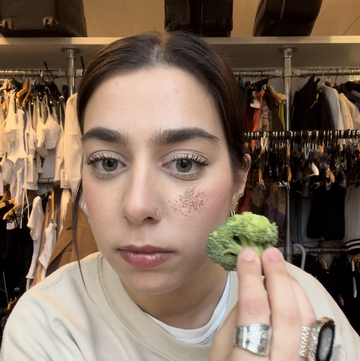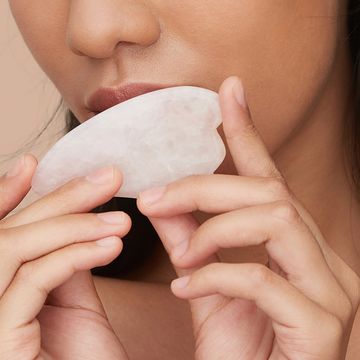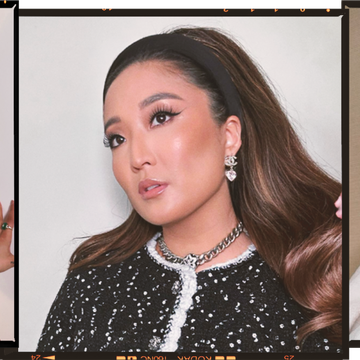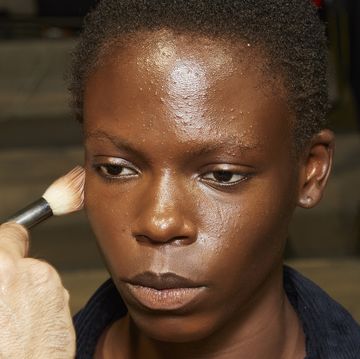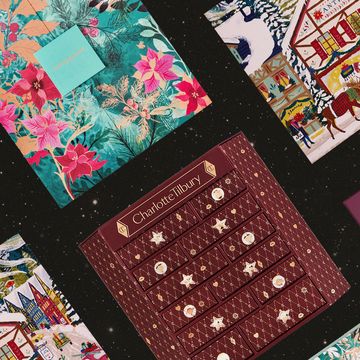Eager to please, the perfume industry has spoiled us into a belief that we all deserve to smell unique. But in the race for individuality, did signature scents become a thing of the past?
"Wow, get me out of this lift." I don’t say that, obviously. But it’s what I think as soon as the two magazine executives enter, bringing with them their perfume-doused coats, collars and wrists. It’s not the smell that’s the issue. Honestly, that’s the only enjoyable part: thorny fruits, an overdose of Turkish rose, the contradiction of adolescent patchouli and potent sandalwood, then almost-vanilla. Bark. Musk. Olfactory morse code for power and sex. I’d recognise this unrepentant showpiece anywhere – these days, anyway.
The only issue, I realise, as our six nostrils flex together like the feet of synchronised swimmers, is that both women are wearing it.
Executive One compliments Executive Two.
“Oh, thank you,” she replies, silver rings clacking against her necklaces.
“I never like to tell anyone what I’m wearing, but...it’s Portrait Of A Lady. By Fréd-,”
“Frédéric Malle... I thought so.”
Wince-worthy silence.
Executive One continues. “Worn it for years actually. Almost didn’t recognise it there... on you.”
The doors open and they depart in opposite directions, two ghosts of signature scent sailing behind them. The secret is out. Another niche has hit the mainstream.
In 2020, feeling special and one-of-a-kind influences us as consumers more than ever – and the troubled perfume industry wants to cater to that. According to Alex Fisher, associate director of beauty and personal care at Mintel, the UK fragrance market was estimated to decline by 0.8% to £1.48 billion in 2019, before a longer-term period of growth, as consumers traded up to more sophisticated formats. Fisher explained that brands need to consider, among ingredient transparency and ethical values,“more unique benefits to differentiate from competitors”.
And so the world of bottled smells set about finding ways to add a sparkle of exclusivity to every move it makes. The only issue is, by the time a brand has convinced us they’re our olfactory soulmate, everyone else has usually caught on too. Whereas in skincare, word of mouth and great marketing helps a product hit the big time, in fragrance, nobody likes smelling like everyone else at brunch.
STEALING SMELLS
How did we get here? Chances are, you’ve nicked someone’s “signature scent” at some point – intentionally or otherwise. It doesn’t always happen explicitly – usually a well-meaning compliment that turns into an unwitting recommendation, or a borrowed spritz in a bathroom that makes it onto a Christmas wish list. It can also happen ambiently; a Brooklyn-born obscurity or Parisian passion project just, somehow, starts coming up in conversation over dinner.
For Shannon, a freelance beauty editor, it was Estée Lauder’s Bronze Goddess.
“It holds memories of life-changing holidays for me. When I see someone spritzing it frivolously at a boozy brunch, I get livid that they could use something so sentimental to me with zero thought.”
Medina, a beauty assistant, tells me she’s hoping the UK doesn’t find out about her own favourite (come closer and I’ll whisper it: Maison Louis Marie).
“You want the best for the brand but also you don’t want it to change... I feel a bit protective. What if everyone loves it and she goes into a big retailer here? What if it loses its niche, precious charm?”
Let me explain. Firstly, it wasn’t always this way. Once, there weren’t enough fragrances knocking around to leave plausible accusations of taste-theft. You chose from around 50 to 100 launches per year. You were the Opium type or the Obsession type; Kenzo or Tommy, Guerlain or Mugler, Dior or JLo.
Teens, too. I remember how, in 2005, my secondary school was split into body-spray tribes: Impulse or The BodyShop. Charlie Red or So...? Kiss Me. LynxAfrica or, er, nothing.
“If you look through the ages, perfume has always been a reflection of what’s happening in society,” says Lorna McKay, CEO of The Perfume Society. And what does McKay think we want now? “To be unique, of course.”
Nowadays, the olfactory banquet is updated daily. “Last year there were over 2,000 fragrances launched,” says McKay. “Even we have trouble just getting through them. It’s impossible.” The selection is so wide-ranging that, yes, it’s more reasonable to feel affronted these days if your perfume goes mainstream.
And as digital natives and shrewd researchers, all that hard work we put into finding something unique means that, perhaps, we feel entitled to our own little secret. Exclusivity and individuality is a universal desire and it’s playing out in very different ways across the generations and wealth brackets.
VERY IMPORTANT PERFUME-WEARERS
If you have the budget, you can set yourself apart from others via notes that are impossible to include at lesser price points. You might have a taste for opulent tuberose or swollen incense ouds, sparkly aldehydes (think Chanel No 5) or hyper-realistic lily of the valley (a smell impossible to capture naturally, which means costly synthetic replication is in order).
Or, you can opt for the “upper prestige” offerings of the many designer perfume brands: Tom Ford’s Private Blend, Maison Christian Dior Perfumes, or Bulgari’s Le Gemme High Perfumery Collection (which takes inspiration from literal jewels). These lines are like cordoned-off VIP areas and will usually set you back at least £150. Come on in and enjoy the attention – if you can afford it.
Savvy beauty businesses Estée Lauder and L’Oréal also prepared for the “unique scent” phenomenon by partnering with niche brands who could invigorate our imaginations with eccentric, playful smells. In 2016, Estée Lauder acquired By Kilian. In 2014, it acquired Le Labo and – you guessed it – Frédéric Malle, the now notorious French brand from my elevator tale. Similarly, L’Oréal invested in Atelier Cologne, a niche brand creating “scent-wardrobes” made from raw, natural materials.
Following these acquisitions, many fragrances were reformulated so they could be sold globally in any country (regulations, set by the International Fragrance Association, mean some ingredients, like oak moss, cannot be sold in certain territories). Many boujie fragrances became more affordable, and suddenly had the thrust of PR, pulling away the velvet curtain of mystique. It’s how Le Labo’s Santal 33 became the olfactory It Girl of 2020. And it explains why my lift experience, with a scent that was once the preserve of the in-the-know elite, occurred.
“I don’t care that only a fraction of my customers love tea, leather notes or ambery notes,” says Atelier Cologne co-founder Sylvie Ganter-Cervasel, whose brand is rooted in personalisation. There’s the expansive library of sometimes polarising accords. There’s the monogrammed cases. There’s the fact that while many big brands insist on fragrances that synthetically smell the same on everyone, Atelier Cologne fragrances smell different.
Ganter-Cervasel explains this is because they’re made from raw materials in the highest percentages possible.“If you and your partner wore Love Osmanthus, it would smell different because of how those naturals evolve.” And it’s true. When my partner wears my Orange Sanguine – an ecstatic grapefruit splash – on her it smells like geranium.
Besides wearing luxe compositions and expensive naturals, what options do we have? There is Experimental Perfume Club – become a member and perfumer Emmanuelle Moeglin will help you create your own custom fragrance. Layering fragrances is also an option, but has its own perils.
...Take it from my friend Roisin, who once prided herself on a secret combination of Aesop Marrakech and sandalwood oil. Her DIY formula remained classified until one day, in a club toilet: “I overheard my ex’s new girlfriend telling everyone in the queue why she smelled so good, and you better believe she’d been tipped off. Raging."
MIRROR FRAGRANCES
Back in the mid-Noughties, German perfumer Geza Schön didn’t know what to expect when he called his scientist friend to find out the results of a new fragrance he’d developed. Schön’s a modest man and would hate to be referred to as an olfactory Einstein, but while training to be a nose, he had an idea that would go on to revolutionise the landscape of perfume. Most fragrances are made up of many different smells, but he selected a single man-made molecule, beautiful enough to be worn alone.
He had no idea he’d just created something capable of stimulating one of the last five remaining pheromone receptors in the human body – sexual attraction in a scent. The scientist’s reply after testing the perfume? “Geza, your cell I was testing began to dance.” Schön laughs as, 14 years later, he recalls this over the phone.“It is beyond poetic.”
And so Molecule 01, born into the now famous Escentric Molecules fragrance family, skyrocketed to notoriety. To this day, it’s dubbed a love potion, a magical see-through scent, and one of the first fragrances to become famous for smelling a little different on everyone.
In 2017, it was joined by Glossier’s house fragrance. Founder Emily Weiss shares Schön’s interest in pheromones, in the skin’s pH and in personal scents, and when the digital-first company decided to launch a perfume, they were met with a challenge: how to sell it through a scentless screen?
The answer: to create something universally flattering. Enter Glossier You, which went on to become a mid-range go-to for Gen Zs, millennials and even their parents. It promises “an addictive musk scent that adapts to your unique skin chemistry”. Like Molecule 01, it contains pheromone receptor stimulant “iso e super”, along with creamy, warm base notes. Glossier You is for nobody as much as it is for everybody. Even the bottle is label-less.
I refer to scents like Molecule 01, Glossier You and their perfume peers as “mirror fragrances”. The branding isn’t about a flavour-of-the-month model on a billboard to whom only a skinny, caucasian few can relate.
Put simply, this fragrance category is the no-make-up make-up of perfume. It’s the ideal scented companion to a lifestyle where excess is out and self-optimisation is in. It’s not about false lashes, it’s about undetectable individuals and lash tints. And it’s not about smelling like a fragrance house’s conceptualisation of millennial ideals– it’s about, very simply, smelling like your ideal self (albeit a very clean, very sexy, self).
What’s more, for £45, you can get 50ml of Glossier You. For £72, you can get a big bottle of Molecule 01 – is it any wonder that those who can’t afford to dip their spoon into the world of luxury raw naturals and upper-prestige hideouts are retreating to pheromone and pH sorcery instead?
They’re clever arrangements of scents. Miraculous as they might smell, they’re not immune to the popularity paradox.
In fact, Glossier You won Popular Fragrance Of The Year at The Fragrance Foundation Awards in 2018. It’s a favourite of Laura Capon, deputy beauty editor at Cosmopolitan, and I’ve seen her grow pained as the fragrance has dribbled into notoriety:
“It feels like someone wearing your clothes without asking. In a completely selfish way... it feels like my smell... like part of my identity.”
The question remains: why do we care so damn much whether we smell like others?
For Medina, it’s about feeling like she “belongs to a little cult of pretty smells”. For Shannon, it’s about having the careful masterpiece of self-identification plagiarised.
“When someone who’s wildly different to you is using your fragrance, it makes you think about yourself in a new light. I’m like, ‘Oh god, I’ve gone mainstream.’”
After all, if even the niche, the custom, the DIY and the transparent fragrances can’t sate our relentless appetite for individuality, perhaps we need an attitude check.
Perhaps this feeling comes from an inherent cynicism towards “big brands” – and I get it. Some indie perfumer’s bottled rainy-pavement smell perhaps feels more comfortably far removed from the terrors of capitalism, of a fluttering economy, than one found in Duty Free at Gatwick Airport.
But our tastes in fragrance, just like fashion and anything else rooted in society’s whims, swing on a pendulum. So perhaps it’s time to prepare for the rebirth of the iconic perfume. Imagine the unity that could come once we all lean into the collective celebration of certain smells? A nod to the solidarity felt in smelling Opium on another bad bitch’s shoulder pads in an ’80s office. Remembering the euphoria of a group of bridesmaids wearing CK Eternity at a hen party.
In 2020, an iconic scent might look very different – maybe it’ll be the brainchild of a garage perfumer, sold on Instagram, one day bought by a parent brand. But the point remains: maybe we should accept that smelling the same is no big deal.
As we distance ourselves further and further from one another, as the cultural touchstones we once shared suffer from the repercussions of lockdown, and as society is gripped at the altar of perpetual disagreement, perhaps we shouldn’t be constantly pursuing differences in smell.
Sure, we can appreciate the vastness of the fragrance industry, we can wonder at the innovations and call for greater representation for everyone when purchasing perfume. But in a world where sitting in the cinema, or screaming to your favourite band, or sweating in a nightclub can no longer be taken for granted, perhaps fragrance could be the one thing, finally, we relish in doing together. ◆
Cosmopolitan UK's November issue is out now and you can SUBSCRIBE HERE.
Like this article? Sign up to our newsletter to get more articles like this delivered straight to your inbox.
Follow Kate on Instagram
